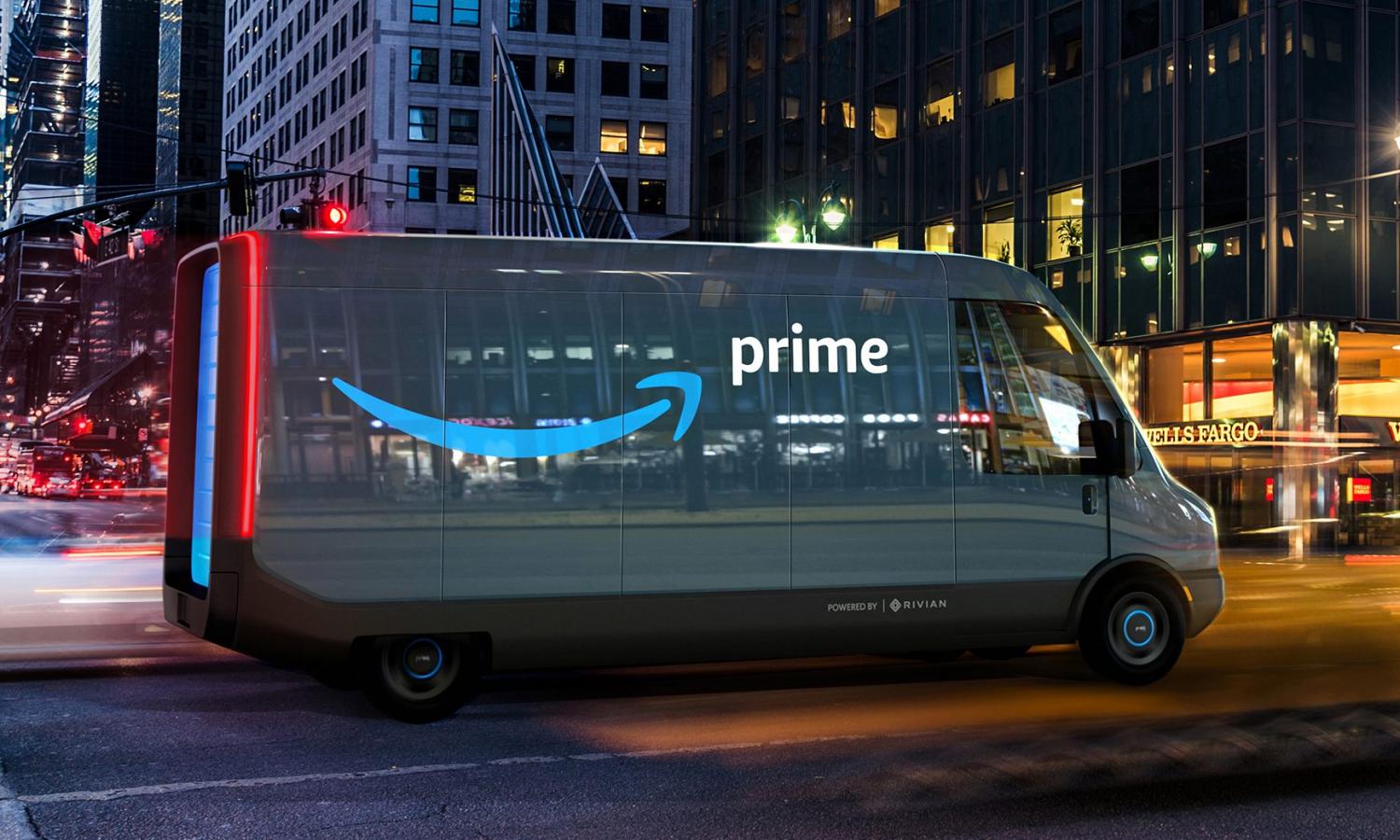
TriplePundit is covering the U.N. General Assembly and Climate Week NYC through the weekend. You can follow our coverage here.
Just before Climate Week launched, Amazon said it was placing the largest ever order of electric delivery trucks when it announced the company would buy 100,000 vehicles from the U.S.-based EV startup Rivian. Amazon CEO Jeff Bezos says the first of these would begin delivering packages to customers in 2021, while the company’s press release detailed 10,000 would be on the road in 2022, with the full complement of 100,000 vehicles in service by 2030.
Amazon’s environmental and economic reasons for betting on Rivian
Amazon, universally known for its online store as opposed to its delivery fleets, is getting serious about controlling its own logistics operations. Earlier this year, the company announced it was ending its contract with FedEx for ground transportation. This latest development indicates it is taking bold steps towards handling its own deliveries using new and cleaner vehicle technologies.
The announcement was made in concert with a broader commitment from the company to be at net zero carbon by 2040 and operate on 100 percent renewable energy by 2030. This shift includes some environmental investments; for example, Amazon has announced a partnership with the Nature Conservancy to invest $100 million for efforts in the restoration of forests, peatlands and wetlands.
In terms of the electric delivery fleet, Amazon’s order from Rivian meshes with its financial stake in the electric truck manufacturer. Amazon led a $700 million investment round for Rivian earlier this year, but to date, the EV start-up has yet to sell any vehicles into the market. Instead the company has developed both a high end electric pickup truck and SUV prototype, both aimed at the aspirational end of the consumer market with vehicles slated to start at around $70,000.
Such a shot in the arm from Amazon to both invest in the company and place such a huge order will, no doubt, be fundamental for Rivian’s commercial viability, since establishing an automotive start-up is a hugely costly proposition; think of the trials and tribulations Tesla has gone through in its quest to become a mass-market manufacturer.
Changes in how logistics companies deliver packages
Amazon’s initiative to electrify its ground transportation fleet is, however, consistent with changes afoot in the logistics space more broadly, where electrification is becoming more of an area of focus.
Last year, Ryder System Inc. announced it would buy 900 electric delivery vehicles from Chinese manufacturer Chenje Energy inc, and lease them to Federal Express, while Fed-Ex would concurrently purchase 100 of its own. All 1,000 trucks are to be operated by Fed-Ex for both residential and commercial customers in California. When this deal was announced in late 2018, it was touted as the largest ever purchase of electric vehicles in the whole of the United States which is, of course, now dwarfed by Amazon’s move.
A more tentative step was was DHL’s February announcement that it would roll out 63 electric delivery trucks to operate in the San Francisco Bay Area, beginning service this year and deployed as part of the company’s effort in becoming an emissions-free delivery company by 2050. Already, in Germany, DHL, a part of Deutsche Post, says it is the largest user of “electro-mobility” in the country, with 12,000 electrified vehicles in operation including e-bikes and e-trikes.
Over at UPS, the company currently operates 1,000 electric or hybrid delivery vehicles throughout its worldwide network, and has placed an order for 125 of Tesla’s Semi Class 8 trucks which the automaker is supposed to start producing this year. That said, UPS’s Carlton Rose, the company’s president of global fleet maintenance, stresses that OEM vehicle manufacturers as well as utilities are going to need to work with fleet operators in order to make electrification irresistible in the future, according to reporting in FleetOwner.com. Rose indicates the company doesn’t think that future is here yet, saying OEM equipment needs to both work as well as conventional options, and it needs to be at the right cost.
A step forward for the electrification of transportation?
By comparison, Amazon’s order of 100,000 Rivian trucks leapfrogs all of the pure-play logistics companies in terms of the sheer numbers of EVs the company is committing to deploy in future. Furthermore, purchasing from a startup that has yet to sell any vehicles at all is a bold move. But Amazon is known for being a game changer, and as a behemoth company it no doubt has the deep pockets necessary to bring the plan to fruition.
As Climate Week wraps up, electrification trends are the subject of one session centered on looking at ways to promote the electrification of transportation in America’s cities. The discussion will focus on the question as to whether declarations by a core of American cities to create fossil fuel-free zones could be the transformative way to speed the adoption of EVs. With urban air quality being a big concern in congested urban environments commensurate with EV technology maturing, electrification trends in the logistics industry are highly likely to build momentum.
Image credit: Rivian

Phil Covington holds an MBA in Sustainable Management from Presidio Graduate School. In the past, he spent 16 years in the freight transportation and logistics industry. Today, Phil's writing focuses on transportation, forestry, technology and matters of sustainability in business.














